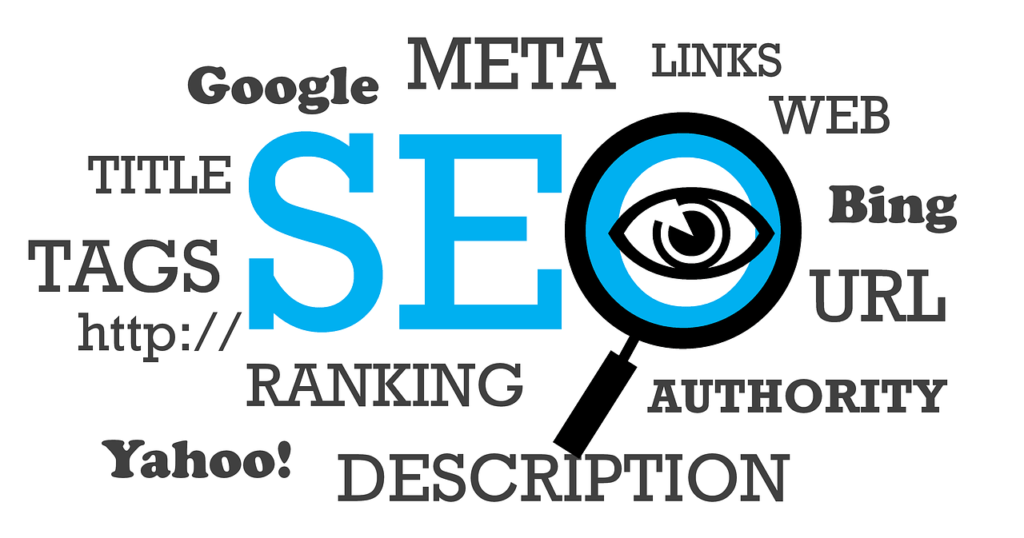Keywords play a crucial role in SEO. Today, we’ll explore what keywords are, why they are essential in SEO, and how you can effectively use them to boost your website’s ranking on search engines. Additionally, I’ll discuss how to integrate keywords into your SEO strategy and important considerations to keep in mind. Let’s dive in!
Introduction to Keywords
So, what exactly is a keyword? Simply put, keywords are words or phrases that describe the content or information on your webpage. For instance, if your website features a blog about digital marketing, keywords like “digital marketing,” “marketing,” and related terms would define the essence of your content.
From an SEO perspective, keywords take on a slightly different meaning. They are the specific words or phrases you want your webpage to rank for in search engine results. If someone searches for terms related to your content, effective use of keywords can ensure that your webpage appears prominently.
Importance of Keyword Research
Why is keyword research crucial for SEO? The answer lies in understanding which words and phrases your target audience uses when searching online. By identifying these keywords, you can strategically integrate them into your content. This not only helps Google’s crawler understand your webpage’s relevance but also enhances user experience by delivering content that matches their queries accurately.
Using Keywords for SEO
It’s important to note that keywords are not just for search engines; they also benefit your audience. When users find your website through relevant keywords, it signifies that your content aligns with their needs. For example, if someone searches for “best salon in Delhi,” having those keywords on your salon’s webpage can directly address their search intent.
How to Use Keywords in SEO
Now, let’s discuss the practical aspects of using keywords in SEO. It’s not merely about inserting keywords randomly; moderation and natural integration are key. Here are some guidelines:
- Moderation: Avoid excessive use of keywords. Aim for a keyword density of 2-3% throughout your content. This ensures that your keywords are present enough to signal relevance to search engines without appearing forced.
- Natural Integration: Keywords should fit seamlessly into your content. They should appear in sentences, topics, and paragraphs in a logical and structured manner. This approach avoids keyword stuffing, where keywords are inserted unnaturally to manipulate search rankings.
- Keyword Planning vs. Keyword Stuffing: There’s a significant difference between strategic keyword planning and keyword stuffing. Planning involves thoughtful research and intentional placement of keywords to enhance content relevance, while stuffing detracts from user experience and can result in penalties from search engines.
Why is SEO Important Today?
Search Engine Optimization (SEO) has become pivotal as millions of people engage in online searches daily. Whether you’re a freelancer, a business owner, or someone seeking specific information, the visibility of your website on search engines like Google can make a significant difference.
- Importance of Keyword Ranking: Imagine searching for “freelancing” on Google. Do you typically scroll past the first page of results? Probably not. This is why ranking high for relevant business keywords, such as “freelancing,” is crucial. It ensures that your website appears prominently to potential clients or customers, driving traffic and engagement.
Understanding Keywords:
Keywords are at the heart of SEO. They are the specific terms or phrases that users enter into search engines to find information. For instance, “success stories” related to Amazon or freelancing can attract targeted audiences if strategically placed on your website.
Technical Aspects of SEO:
Beyond keywords, SEO involves technical elements that enhance user experience and search engine ranking. Factors such as website speed, mobile responsiveness, and overall usability play pivotal roles. A well-optimized website not only attracts visitors but also keeps them engaged with seamless navigation and quick load times.
How Search Engines Work?
Now, let’s dive into the workings of search engines. Have you ever wondered how search engines like Google operate? Initially, I used to think that when we type a query such as “black dress” into Google, the search engine instantly retrieves results from websites. However, the process is more intricate and involves several crucial steps performed by Google before displaying those results to us.
Crawling:
The internet is vast, hosting millions of terabytes of data across various websites. Whenever a website is created or updated—like adding a blog post or images—Google employs what it calls a crawler (or spider). This crawler systematically traverses the internet, visiting websites, and collecting information. Think of it as a diligent assistant gathering all the books from a library and placing them in a hall.
Indexing:
Once the crawler collects data, it sends this information to Google’s local servers (essentially Google’s own hard drives). Here, indexers categorize and organize this data into different sections based on its content. For instance, content about “black dresses,” “pink dresses,” and other categories are sorted accordingly. This categorization process is akin to organizing books into different sections like literature, economics, or magazines in a library.
Ranking:
Now comes the crucial part: ranking. When a user enters a query (like “best black dresses”), Google’s ranking algorithms come into play. These algorithms analyze the indexed data to determine the relevance and authority of each webpage. The results are then displayed on the Search Engine Results Page (SERP), with the most relevant and authoritative pages appearing higher in the rankings.
Illustrative Example
To illustrate this process, imagine managing a library. When new books arrive (equivalent to new web content), a team of assistants handles the process:
Crawler (Spider):
This assistant collects all the books from the delivery truck and places them in the library’s main hall.
Indexer:
Another assistant organizes these books into different categories such as fiction, non-fiction, and so on.
Ranking:
Finally, a third assistant takes queries from library visitors and retrieves the most relevant books based on their requests, ensuring a satisfactory search experience.
Understanding how search engines work—through crawling, indexing, and ranking—is fundamental for anyone involved in digital marketing or website management. In upcoming article, we’ll delve deeper into Google’s ranking algorithms and explore strategies to optimize crawling, indexing, and ultimately improve your website’s visibility.





















